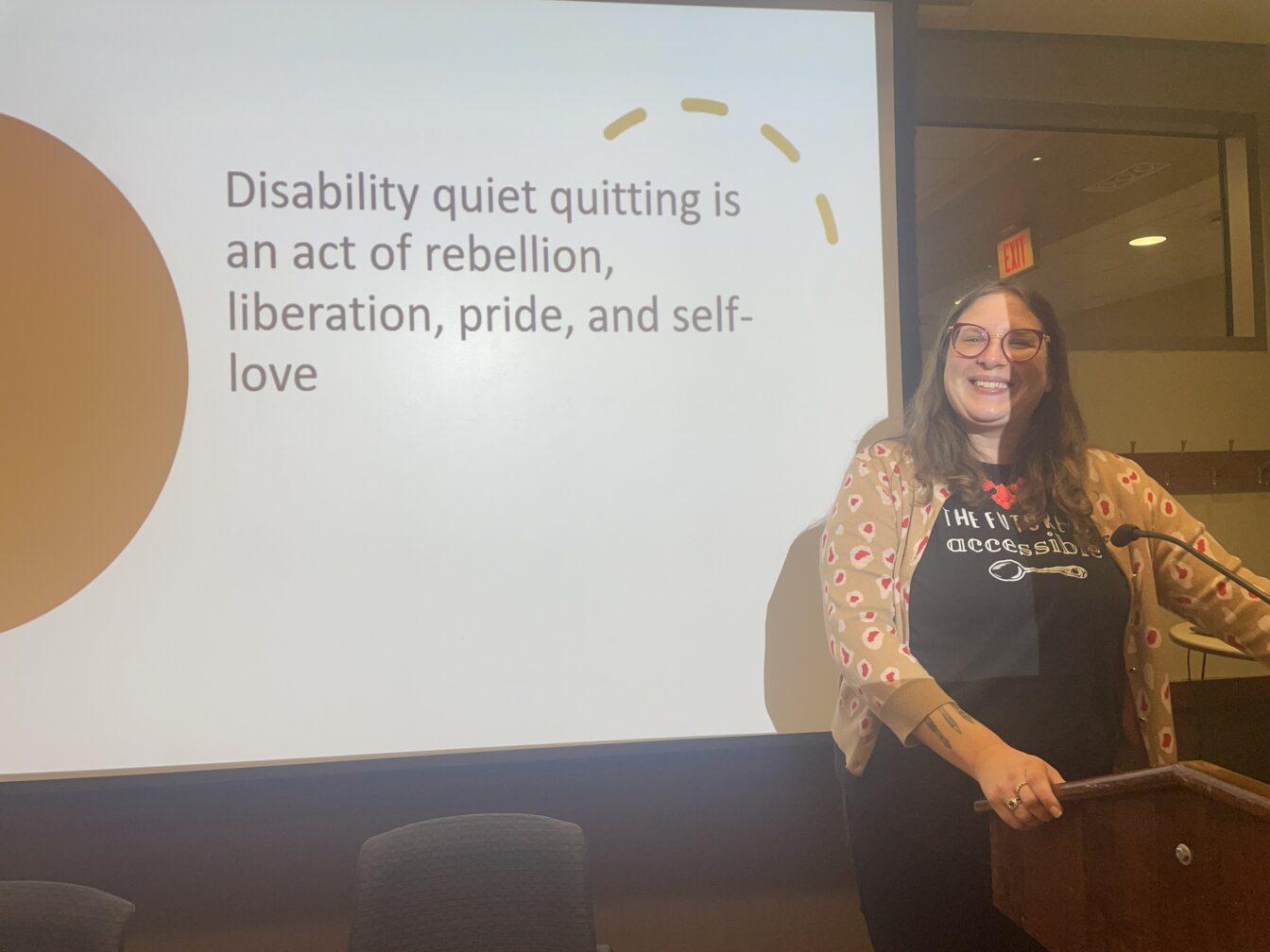The Disability Cultural Center coalition hosted disability and mental health advocate Rachel Kallem Whitman from Duquesne University at Union South to celebrate progress towards creating a physical communal space for the University of Wisconsin’s disabled community Thursday.
Though a permanent space on campus is yet to be established, the McBurney Disability Resource Center has offered one of its conference rooms, Graaskamp, to house the Disability Cultural Center, DCC coalition member Priyanka Guptasarma said.
Whitman’s discussion was followed by adaptive bowling and community gathering time in Lower Sett.
The lack of a physical space for the disabled community at UW has created a feeling of isolation for students, Guptasarma said.
“I was seriously considering leaving or transferring to another university,” Guptasarma said.
Whitman, who teaches courses in Disability Studies, started off her discussion with an “access check-in,” inviting listeners to consider what their body needs, whether it be sitting on the floor, standing or grabbing a snack.
She then detailed her experience as a person with bipolar disorder entering the workforce for the first time and the low expectations her employers had for her, solely based on her disability.
“We’re pitied for being special, and we’re judged for being worthless,” Whitman said. “But, I learned that the end result is actually the same because whether we’re labeled special or worthless, non-disabled people don’t believe in us.”
The Spoon Theory, a popular metaphor for explaining life with a chronic illness, is one of the most effective ways to explain her experience to non-disabled people, Whitman said.
According to Whitman, the Spoon Theory says a person with a chronic illness has a limited number of “spoons,” or energy, for the day, and every activity reduces the number of spoons.
Whitman said this causes a disconnect between how the disabled and non-disabled communities view work-life balance.
“When someone has a different worldview, a different form of work life balance, especially if they have privilege and they claim that your work life balance formula is invalid or they deny it even exists, there are consequences,” Whitman said. “Imagine trying to fight for access, accommodations and inclusion when your very identity is at question.”
Whitman ended by urging UW’s disabled community to set their own goals and expectations for themselves rather than living up to the unrealistic expectations of the non-disabled community.
The McBurney Center’s next event will be the Waisman 5K Whirl Run, Walk & Roll for All Abilities on Oct. 9.



